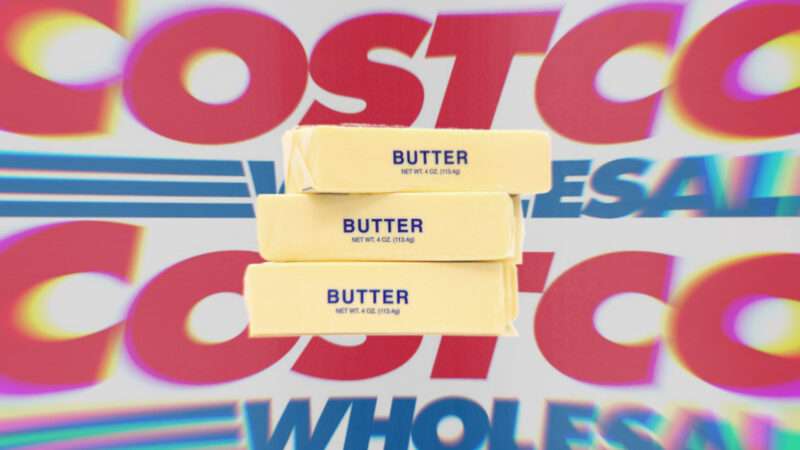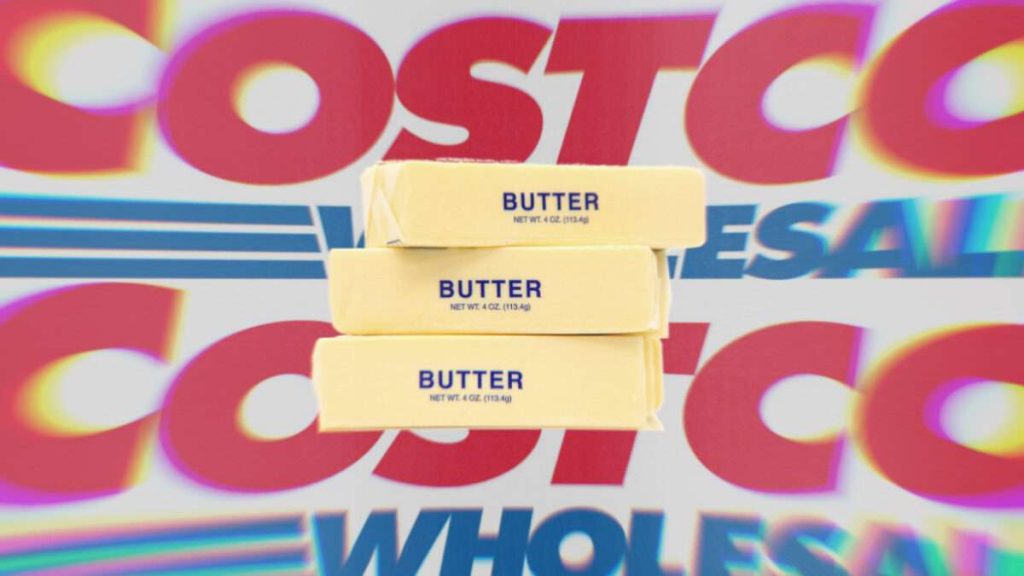
Last month, the U.S. Food and Drug Administration (FDA) recalled almost 80,000 pounds of Costco’s popular store-brand butter due to a crucial labeling error. While the butter listed “cream” as an ingredient, the packaging lacked a critical allergen warning alerting consumers that butter contains milk.
That’s right, Costco had to waste 40 tons of perfectly good butter because shoppers apparently don’t know that butter contains milk.
FDA rules require food manufacturers to state whether their products contain or may have come into contact with major allergens, including milk, eggs, fish, crustacean shellfish, tree nuts, peanuts, wheat, sesame, and soybeans. According to the FDA, 46,800 pounds of Kirkland Signature Unsalted Sweet Cream Butter and 32,400 pounds of Kirkland Signature Salted Sweet Cream Butter accurately listed “cream” as an ingredient, but omitted an allergen-specific label on the package warning that the product contained milk.
The FDA classified the recall as Class II, meaning the labeling error is a “situation in which use of or exposure to a violative product may cause temporary or medically reversible adverse health consequences or where the probability of serious adverse health consequences is remote.” But despite the low risk of harm—made even lower when considering that butter is one of the most well-known dairy products—the enormous supply of butter will now go to waste.
In response, 2020 Libertarian vice presidential candidate Spike Cohen said, “80,000 pounds of Costco butter was just recalled, because the label doesn’t say that it contains milk. It’s butter.”
“News articles are telling people how they can return, or safely dispose of, the butter. It’s butter,” he added.
“This is a joke, right? Or it’s sabotage, by someone who wants the @US_FDA to be deleted,” replied another X user.
While these rules are designed to help consumers avoid accidentally ingesting something they’re allergic to, this kind of stringent labeling seems less necessary for products that clearly contain a specific allergen. Is it really a risk to public health if a package of butter that accurately lists its ingredients doesn’t also provide an additional warning about milk? Or if a jar of peanut butter neglects to add an allergen warning for peanuts? Are those allergic to shellfish in danger if a package of shrimp doesn’t have an allergen label for shellfish?
This isn’t the first time FDA labeling rules have led to frustrating consequences. In 2023, the agency added sesame to its list of major allergens. However, instead of helping those allergic to the seeds stay safe, the rules may have led to more danger for those with sesame allergies. Because sesame seeds are so small, it’s difficult to fully isolate them from other ingredients in a manufacturing facility. Instead of taking onerous steps to fully guarantee no cross-contamination with sesame seeds, bakers and food producers have resorted to adding small amounts of sesame into their products so they can list sesame as an allergen and avoid FDA scrutiny.
The post FDA Recalls 80,000 Pounds of Costco Butter Over Missing Milk Allergy Warning appeared first on Reason.com.






